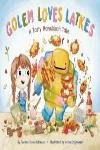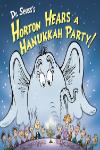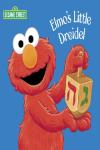Schneider/Berke: Centers of Power (2008)
Buy this book at Amazon or for Kindle
In 2005 Stanley Schneider and Joseph H. Berke published an article in Midstream, titled Discovering Oneself: Kabbalah and Psychoanalysis. Its summary at Amazon reads,
Is this desire [or “burgeoning interest in mystical self introspection”] and even obsession to discover oneself a new phenomenon? Or, has this silently and unobtrusively been a part of our lives–we just never realized it or were unaware of the underlying pull and attraction.
The notes for the article stated that the two authors are “completing their study of psychoanalysis and Kabbalah to be published in two volumes as The Way of the Great Dragon and as Centers of Power. The latter was published by Jason Aronson (now part of Rowman and Littlefield) a few weeks ago in January with the subtitle, “The Convergence of Psychoanalysis and Kabbalah“. There are a few review blurbs there for further information and an official description. This reads,
Kabbalah and psychoanalysis are conceptions about the nature of reality. The former is over two thousand years old. The latter has been formalized less than a hundred years ago. Nonetheless they are parallel journeys of discovery that have forever altered not only what we see, but the very nature of seeing itself. The domain of Kabbalah is the spiritual and material macrocosm. In contrast the concern of psychoanalysis is the microcosm, the innermost recesses of the human mind. However, both are convergent and complementary theories. Kabbalah asserts ‘as above so below,’ meaning, the Godhead, the source of everything, is reflected in the smallest details of existence. Similarly, psychoanalysis traces the evolution from ‘inner objects’ to family feuds and social fields.
More than theories, however, Kabbalah and psychoanalysis test the limits of direct experience. They are contemplative, meditative and introspective methods for restoring shattered worlds and fragmented lives. These are material as well as spiritual entities which have been separated from their source, on one hand ‘the Godhead’ and on the other, ‘personal praxis.’ The purpose of this study is to explore how Kabbalah and psychoanalysis converge and diverge, complement and conflict with each other, in order to amplify their impact and enable mankind to gain a greater understanding of reality.
Warning: The book’s page at Amazon did not mention Berke as a co-author and placed the publication date a month earlier too.

















